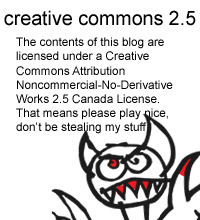![]()
Fifteen years ago no one in news reporting knew what to do with the Internet. The general consensus of analysts was newspapers should put their content online, but the only way to make money was to offer it a paid subscriber only service.
But that made no sense, people who subscribed to the paper already received the paper, and people who only read it on the Internet either had no direct means of payment — if they lived out of province, for example — or they didn’t want to pay for a full subscription only for the privilege of reading two or three stories a week on their favourite team.
Advertising fifteen and ten years ago consisted almost entirely of banner and clutter advertising. All of which made reading websites a chore rather than something enjoyable. So using advertising to make money was an excellent way to make sure people didn’t read your newspaper online.
So newspapers and magazines started to put their content online for free. And it was this decision which is responsible for the slow death of print news media today.
Because, in retrospect, it’s not Twitter and blogs and Facebook that are responsible for the slow death of print news media, it was the decision by the print news media to relinquish total control over their brand and their product as soon as it’s published.
The print news media could have, should have, never given their product to the Internet… at least not without an explanation.
The decision fifteen years ago to give their product away was a defeat, it was done because everyone told them it was inevitable. Since then everyone has treated print media as though the entire industry was on a death watch.
But it’s a self inflicted death, it’s suicide not murder.
It’s as though the print news media has been sitting back waiting for the inevitable. Every decision they’ve made, every strategy they’ve undertaken regarding the Internet, has taken them one step closer to obscurity.
So called “New Media” cannot exist without print journalism, that’s the irony. News published on Twitter, Facebook and general blogs is reprinted mostly from print reporting. Social network companies then make money off the personal information people give up willingly to be included in them, then from advertising surrounding the content.
And, just like YouTube, the content of the social network firms is provided entirely for free by the users — as we are the content providers for the social networking business.
So the business model print news media has selected for itself for the past ten years involves giving away it’s content for free to anyone who wants it, these people then post it to social networks — which exist only because their content is provided for free, and which then profit greatly from the free content.
Keeping in mind Facebook, as it’s currently valued, is worth more than the print news media industry in North America.
It’s the complete lack of ideas coming from the print news industry, and their acceptance of the perception of their inevitable irrelevancy that’s so infuriating. There’s no fight when someone makes the claim bloggers are the reporters of the future. Or that print news is dead.
The famous 1994 quote from Conrad Black, where he called reporters “ignorant, lazy, opinionated, intellectually dishonest and inadequately supervised hacks”, fits with the vision the owners of print news media have had with their business for the past decade.
Ironically, the quote definitely also applies to the “new media” industry which almost entirely relies on untrained and barely motivated people who blog and “tweet” for their profits.
When newspapers like the Rocky Mountain News and the Seattle Post-Intelligencer close, all of the knowledge and sources and information gathered by those reporters is lost. There is power in group reporting that blogging cannot hope to match.
A blogger might be a source, but she’ll never open a foreign affairs bureau in Beijing.
But this isn’t about which delivery system is better, or more accurate, or which is easier to hold accountable, it’s about the resignation of the print news media to its obsolescence.
Why have there been no television commercials or print advertisements showing what kind of power and ability the print news media really has? Why no television ads showing a lone blogger looking into the Hells Angels? Why no commercials showing someone walking around trying to report on genetically modified foods by updating their Twitter account?
Why are newspapers so timid about explaining to people what services they really offer? Why are they so willing to continue to take part in their own demise?
.

.












 0_o
0_o





















First, Yay that you’re back.
Second, I freaking adore Tootsie Rolls and am now craving them. Thanks.
Third, do you think the internet is more of a threat to print media than television was back in the day? Magazines especially were able to adapt and find new niches when they were threatened by television as both a news vehicle and a source of entertainment.